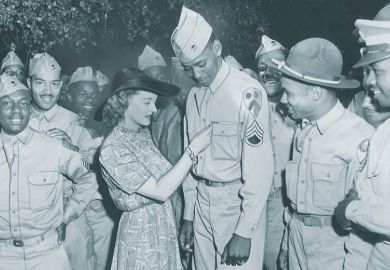A few years ago, interviewed on publication of the massive, dauntingly well-researched survey Cinquante Ans de Cinéma Américain that he co-authored with Jean-Pierre Coursodon, Bertrand Tavernier commented that there are "some directors where you have to study less the ensemble of work than a series of films that are all different... For instance, Sidney Lumet - he practically needs to be discussed film by film; whereas with Fritz Lang or Chaplin, it's possible to see their work thematically."
It is a moot point which camp Tavernier himself, as a film-maker, would fall into. Talking about Michael Powell and Emeric Pressburger, whose films he has eagerly championed, Tavernier notes:
"Seeing them (the films) together, first you realise that imagination is a theme in itself, then in all their films you find the same culture, the same way of rooting the story into a certain cultural background that's both English and open to the rest of the world." Substitute "French" for "English", and the same might well go for Tavernier. In terms of genre, his versatility is impressive: his 20-odd feature-length films to date take in policiers , costume drama, comedy, science fiction, swashbuckler, documentary and even that rarity, an outstanding jazz movie.
Yet, at the same time his films share a strong family resemblance, a distinctive creative profile. In whatever genre, his work is characterised by a restless, sceptical intelligence, a respect for his audience, a sense of moral and aesthetic responsibility, and a staunchly leftwing political stance tempered by an underlying melancholy. Loneliness often besets his characters, troubled by the loss of contact between the generations, and uneasily aware of the constraints of society. All these elements, Stephen Hay's book makes clear, derive from Tavernier's own personality; the films are an expression of a man who has never been a Hollywood-style "director for hire". As Hay notes, all his films "have been highly personal projects" and if inevitably some work better than others, none could be considered trivial. Even his most light-hearted film, the swashbuckler La Fille de d'Artagnan (1994), carries a sombre political subtext and is underscored by a sense of mortality.
All the more surprising, then, that Tavernier's work has received so little attention. When his film-making career got under way in the early 1970s (at the relatively late age of 32), he was hailed as a major humanist director in the tradition of Jean Renoir and Jean-Pierre Melville. But in the 1980s he found himself eclipsed and his political commitment dismissed as old-fashioned, as the spotlight shifted to the flashy cinéma du look of Luc Besson, Leos Carax and Jean-Jacques Beineix. Today, though, it is the work of the lookistes that seems hopelessly dated, while Tavernier's oeuvre appears lastingly relevant. And unlike such survivors of the nouvelle vague as Eric Rohmer or Claude Chabrol who keep tilling (masterfully, in Rohmer's case, one must admit) their own small chosen patch, Tavernier never tires of breaking new ground. With L.6 (1992), about a beleaguered Parisian narcotics squad, and
Ça Commence Aujourd'hui (1999), set in a cash-strapped provincial primary school, he drew inspiration from Ken Loach to make trenchant, documentary-style forays into the rotting substructure of French society, films pulsating with urgency and anger.
But while Loach is fêted in France as a world-class director, we have yet to return the compliment in Tavernier's case. No retrospective of his work has been mounted in Britain since 1980, and several of his most individual and hard-hitting films - Que La Fête Commence ... (1975), Le Juge et l'Assassin (1976), La Passion Béatrice (1987), Capitaine Conan (1997) - have never been released over here. Those films that have gained UK releases mostly draw on his more pensive side: Une Semaine de Vacances (1980), Un Dimanche à la Campagne (1984), La Vie et Rien d'Autre (1986), Daddy Nostalgie (1991). All excellent films and, as always with Tavernier, featuring superb performances from his actors - but taken together, they give a skewed and deceptive picture of the director's output, far too decorous for someone known to his colleagues, according to his producer, Frédéric Bourboulon, as " l'homme en colère " - the angry man.
Hay's book, coming years after Tavernier's feature debut, is the first full-length study of his films in English. Inevitably, the author has a lot to get through, and at times it shows. Apart from the documentaries, lumped together in a chapter on Tavernier as "political film-maker", each of the films is allotted some ten pages in a chronological survey. Hay is a sympathetic and, within limits, perceptive critic, but his evident liking for Tavernier himself and his films sometimes blunts the edge of his insights and occasionally traps him into woozy affirmation: "However, no matter how [Tavernier's] work is defined or judged... we can be sure of one thing: it is true cinema.
Perhaps due to pressure of space, Hay makes little attempt to locate Tavernier in the context of contemporary French film-making. We get the ritual genuflection to Renoir, and brief mention of Tavernier's early links with the directors of the nouvelle vague - but of film-makers younger than these, nothing. This makes the director seem an oddly isolated, even hermetic figure within the French film industry - which he certainly is not. In particular, Hay might usefully have compared Tavernier's always iconoclastic treatment of period subjects (he likes to quote Jules Michelet on the need to "disrespect history") with the more complacent "heritage cinema" slant of directors such as Claude Berri ( Jean de Florette , Manon des Sources ) or Jean-Paul Rappeneau ( Cyrano de Bergerac ) - or indeed with the equally disenchanted but more stylised approach of Patrice Leconte's Ridicule . Such comparisons could usefully have brought out his subject's strengths and limitations as a film-maker.
Tavernier, who regards film-making as a process of discovery, has often spoken of his "need to be astonished" by the unpredictable. For readers unfamiliar with his work, this book will provide a sound, appreciative introduction and with luck whet their appetites. But anyone who knows the films may feel, in reading it, that a touch more astonishment would not have gone amiss.
Philip Kemp is a freelance writer and film historian.
Bertrand Tavernier: The Filmmaker of Lyon
Author - Stephen Hay
ISBN - 1 86064 462 7
Publisher - None
Price - £15.95
Pages - 244
Register to continue
Why register?
- Registration is free and only takes a moment
- Once registered, you can read 3 articles a month
- Sign up for our newsletter
Subscribe
Or subscribe for unlimited access to:
- Unlimited access to news, views, insights & reviews
- Digital editions
- Digital access to THE’s university and college rankings analysis
Already registered or a current subscriber? Login



